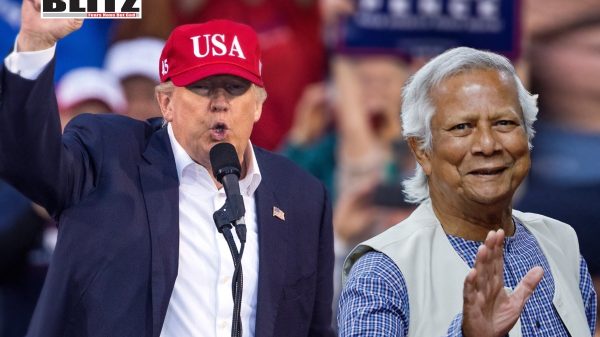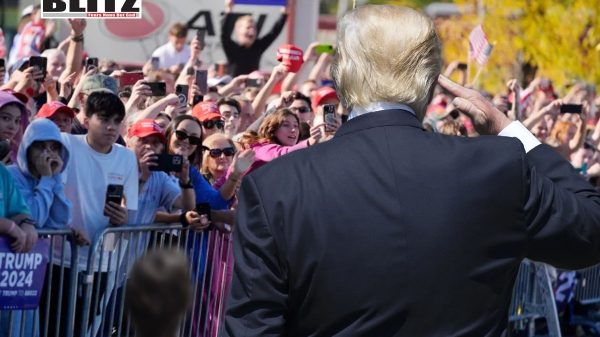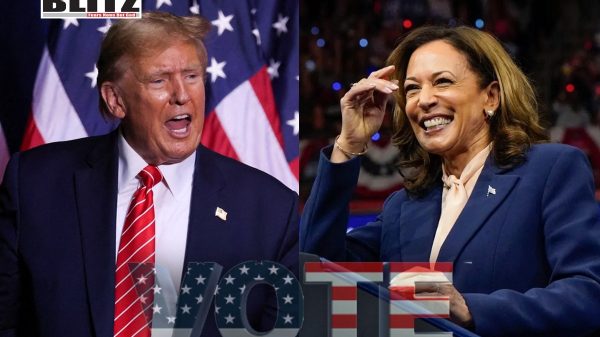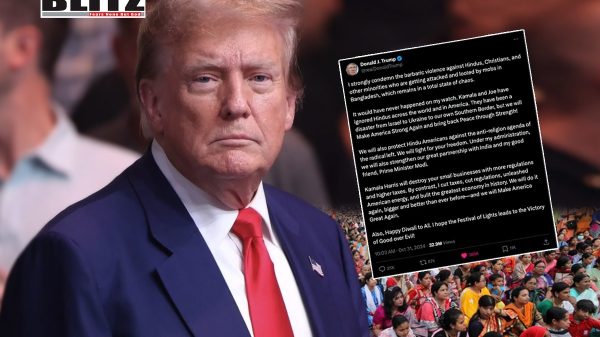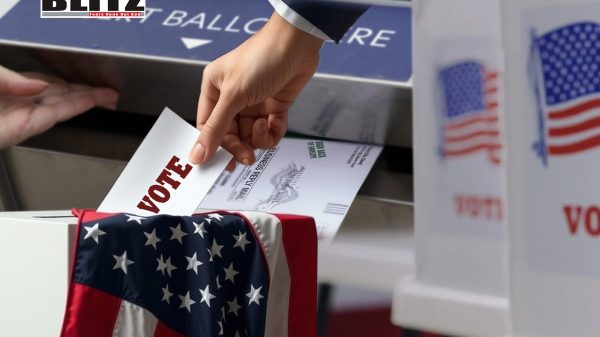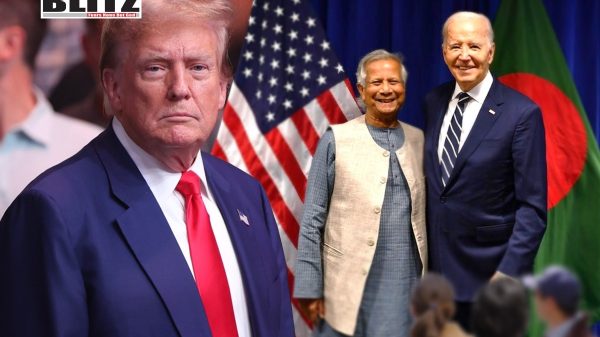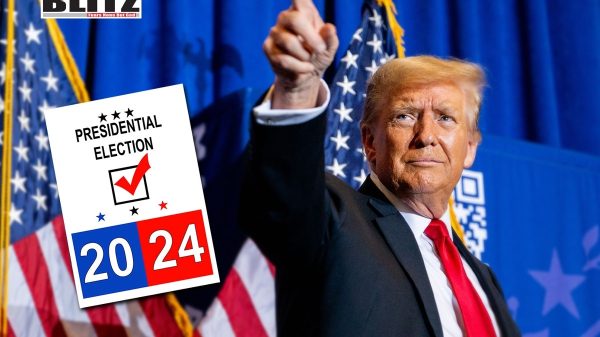Could the 2024 election define the future of the Republic?
- Update Time : Tuesday, November 5, 2024
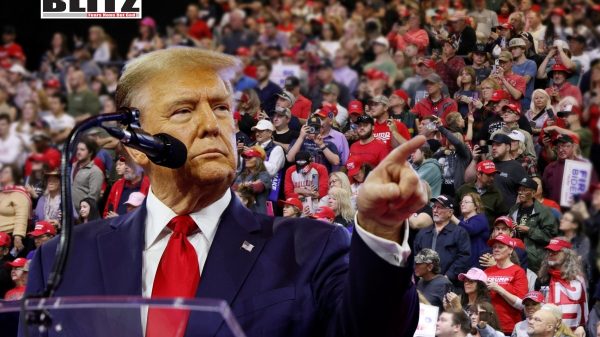
As the United States holds its 2024 election today, a palpable sense of tension is thick in the air. The stakes of this election seem higher than ever, with many Americans sensing a fundamental choice between continuity and change – or perhaps, between survival and collapse. Both sides of the political spectrum increasingly feel that the republic, once seemingly unshakeable, might actually hang in the balance. Supporters of different visions argue fervently for their causes, while others fear that the election could catalyze irreversible rifts. The question on everyone’s mind is not just who will govern, but whether the outcome could splinter the nation itself.
In recent years, calls for greater state autonomy have grown louder, with some arguing that decentralization could alleviate federal overreach and allow states to better govern their citizens. Proponents envision a looser federation where local governance flourishes, regions can prioritize their distinct needs, and citizens feel more connected to their immediate communities. They argue that such a shift could reinvigorate American democracy, restoring a sense of agency to states and protecting regional diversity from the demands of a one-size-fits-all federal policy.
However, others view this movement toward decentralization as dangerous, fearing it may fragment the unity that has held the United States together for centuries. They warn that such a path could lead to weakened federal power and, eventually, a divided America where states compete as rivals rather than cooperate as allies. The shared bonds and collective identity that once defined America might dissipate, replaced by competing factions whose allegiances lie more with regional interests than with the country as a whole.
Mistrust between states and the federal government has been a simmering issue for years, but it now threatens to reach a boiling point. The ideological divides on everything from economic policies and healthcare to immigration and education have only widened, making compromise appear impossible. Each election cycle has escalated the rhetoric and deepened the animosities, with leaders framing political opponents not as fellow Americans with differing views, but as existential threats to the nation’s future.
This election cycle has amplified fears that strong states like Texas or Florida could consider asserting a form of autonomy that challenges federal authority. Such a scenario may seem extreme, but the rhetoric from certain political factions stokes this sentiment, painting the federal government as an oppressive force out of touch with the states it governs. Some warn that a push for state independence, if allowed to gain traction, could drive America to a dangerous breaking point, possibly creating a federation of semi-sovereign territories wary of each other.
The potential for a divided America has not gone unnoticed beyond its borders. For America’s allies, the possibility of US fragmentation is alarming. A weakened America could jeopardize global stability and create a power vacuum that other nations, particularly those antagonistic to American influence, could rush to fill. For instance, nations like China or Russia, long-standing rivals to US hegemony, could capitalize on America’s internal strife by expanding their spheres of influence and challenging Western dominance in regions traditionally aligned with Washington.
A fragmented US might also struggle to enforce its current foreign policies, leaving global partnerships vulnerable and diminishing America’s role on the world stage. The idea of a multipolar world, led not by one superpower but by several distinct blocs, is enticing to some foreign powers who see this as a chance to redefine international norms and institutions. In this world, the “American century” could come to an abrupt end, replaced by a new era where local interests dictate regional dominance rather than any overarching alliance of democracies.
The possibility of America’s division brings to mind historical precedents where empires and republics fell not from external invasions but from internal discord. Some historians and commentators caution that the breakdown of national unity often leads to conflict and strife. The prospect of individual states or regions prioritizing their sovereignty over national cohesion could lead to confrontations, not just politically but, in the worst-case scenario, militarily. The once-united states could become bitter adversaries, fighting over resources, borders, and ideologies.
Without a strong federal government to mediate disputes, the idea of “might makes right” could return, where individual regions or states might feel empowered to assert control in aggressive ways. Political disputes, which today play out in the media and the courts, might escalate to actual physical conflict, mirroring the clashes that once plagued Europe during the era of warring city-states and fragmented kingdoms. Such a transformation would not only risk lives but would also severely erode the ideals that the United States has long championed.
Some critics argue that the republic’s underlying strength has weakened as society prioritizes individual rights over collective responsibility. They claim that a focus on extreme liberal values has fostered a culture that values personal identity over communal identity, leading to a fragmented society that lacks a common purpose. In this view, the erosion of traditional American ideals has left citizens adrift, disconnected from a sense of national pride and shared goals. These critics argue that the 2024 election could exacerbate this trend, with each faction vying to reshape America in its own ideological image, thereby further alienating those who feel marginalized or unheard.
This shift has created an America divided not only along political lines but also along cultural and social divides. As each side entrenches itself, fewer avenues for dialogue and compromise remain, making the specter of a fractured nation feel more plausible. If left unchecked, this trend could lead to a future where Americans identify more strongly with their state, region, or ideology than with their country, ultimately leaving the republic a hollow shell.
There are still those who believe that the United States can weather this storm, provided it pursues a path of genuine dialogue and mutual respect. Instead of insisting on a singular vision for the country, proponents of unity argue that a commitment to embracing diversity – not just in terms of race and culture but in ideologies and regional values – could allow the republic to survive and even thrive. For these advocates, America’s strength lies in its capacity to accommodate different perspectives and policies while remaining united.
However, achieving this vision will require significant concessions from all sides. Leaders must resist the impulse to demonize opponents and instead champion collaboration over division. Citizens, too, must be willing to see beyond their personal grievances and remember the shared heritage that binds them. If the republic can find this delicate balance, the coming election might not spell disaster but instead serve as a reminder of the resilience of a united America.
As America stands on the edge of its most pivotal election in recent history, the choices made by both voters and leaders will shape the nation’s future. Whether it emerges from this period of tension as a stronger, more united republic or succumbs to internal divisions remains uncertain. One thing is clear: the stakes have never been higher, and the outcome could either secure the republic’s legacy or mark the beginning of its end. The world watches as America faces a moment of reckoning, one that will test not only the resilience of its institutions but also the will of its people to remain united in the face of adversity.


